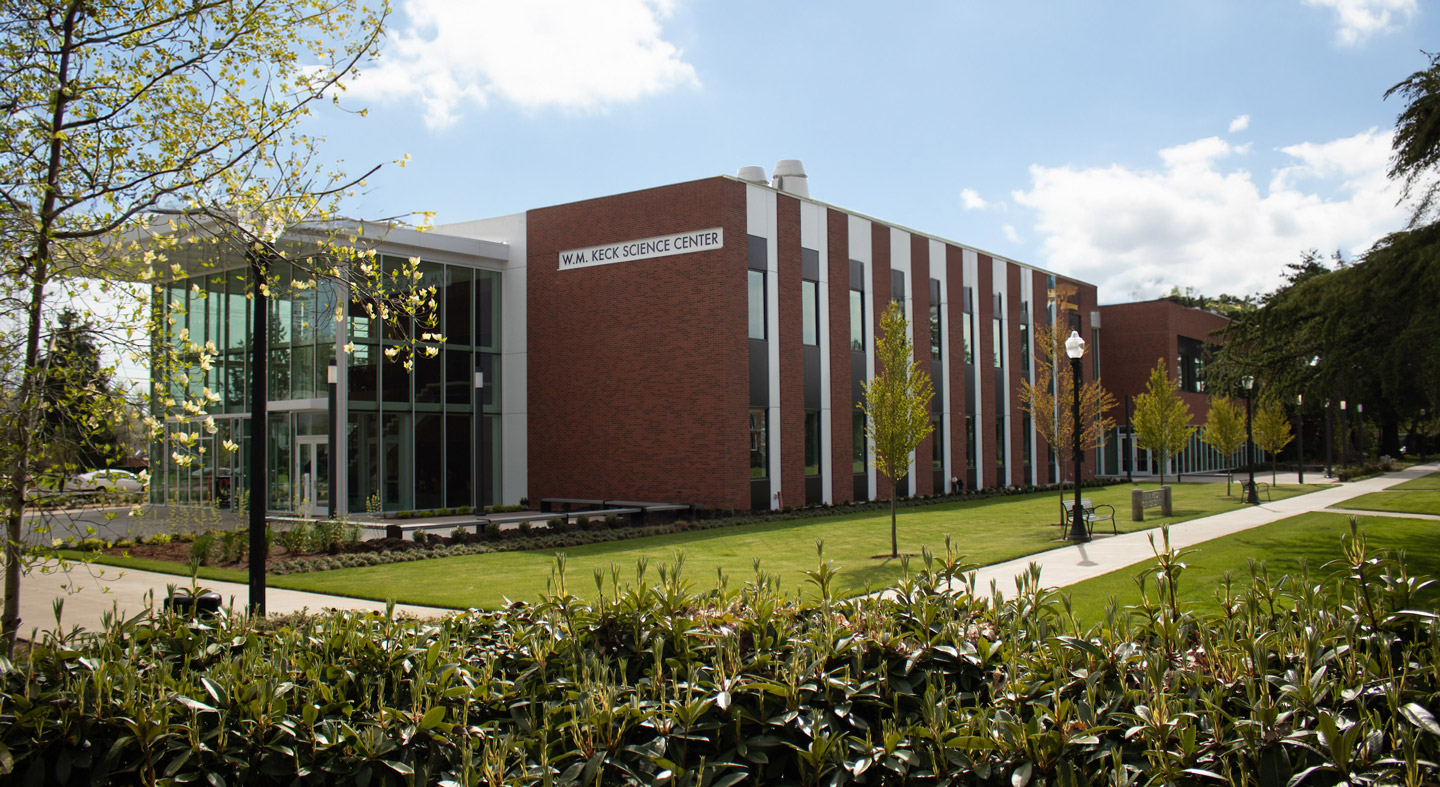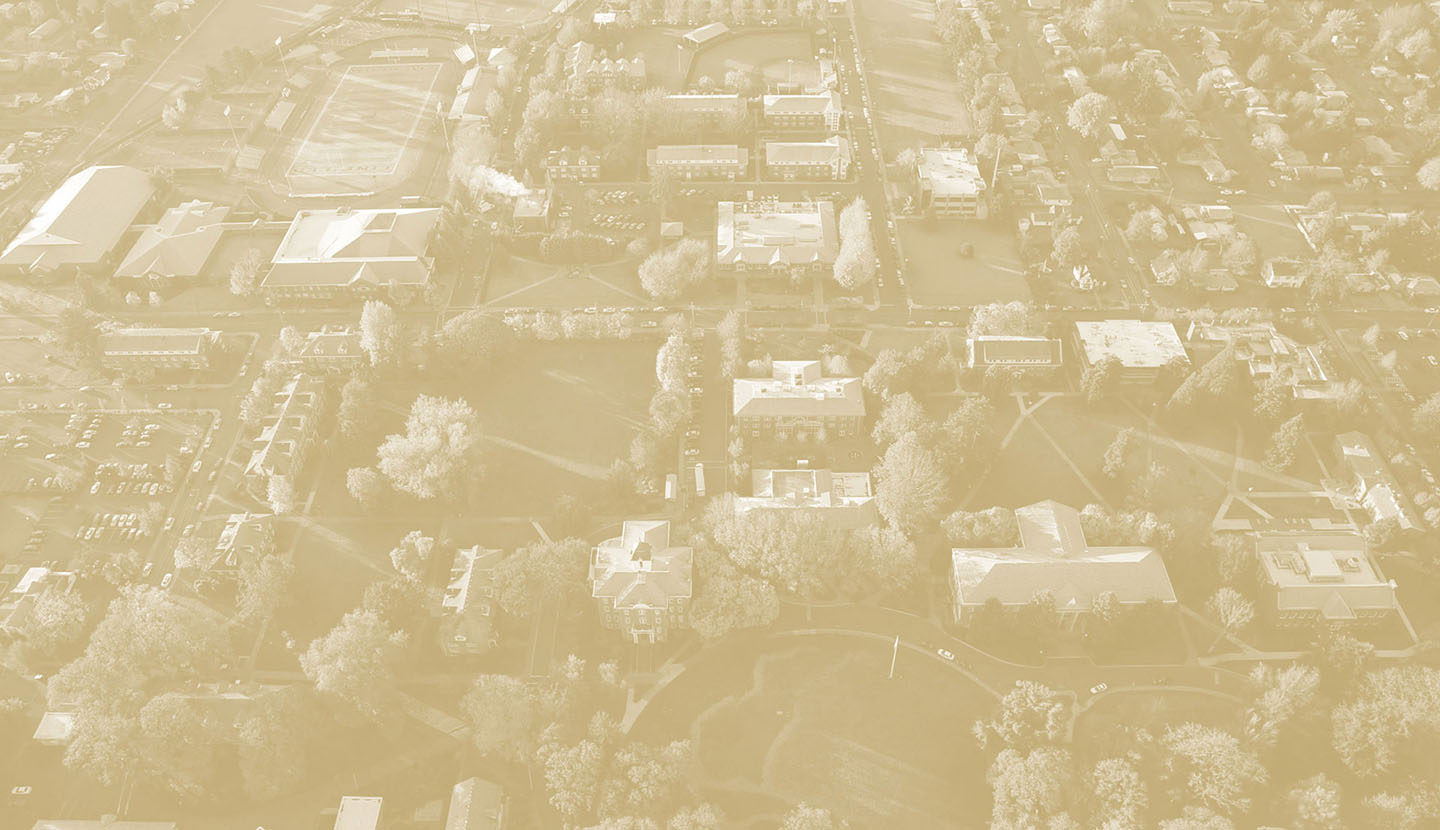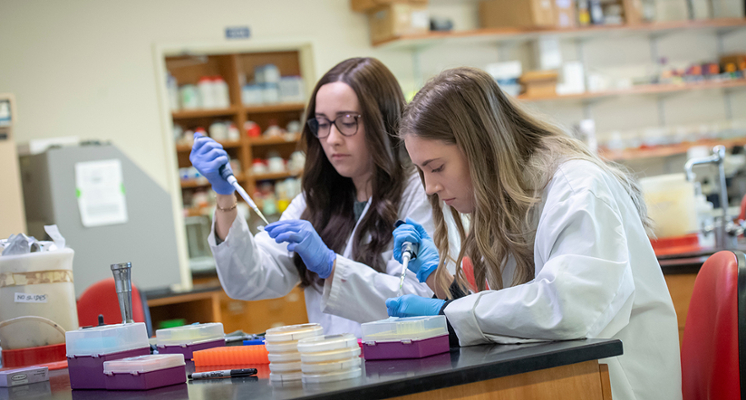
Biology Facilities


Linfield's new science complex
Our brand-new 84,400-square-foot science complex has 11 new state-of-the-art teaching labs, an expansive collaborative research area, and study spaces, all dedicated to the sciences, in addition to various classrooms and a lecture hall with new educational technology.
Biology equipment and research resources
Our faculty engage in research in diverse areas of biology. This diversity is reflected in the variety of resources and equipment available within the biology department. And the new science complex brings life to our collaborative efforts with an expansive new space just for science research.
Microscopes
- A Zeiss Axio Observer Z1 inverted fluorescent microscope equipped with an AxioCam MRm camera and an Eppendorf FemtoJet for microinjections
- A Zeiss Axioskop epifluorescence microscope with differential interference-contrast optics
- Leica and Olympus dissecting and compound microscopes
- A Zeiss LSCM-710 Scanning Confocal Microscope (via a User Agreement with Willamette University for no-cost use of their microscope)
- A scanning electron microscope at a local company (APTech) run by Linfield Physics professor Bill Mackie
Specialty areas
- A walk-in environmental chamber
- Cell growth chambers
- Plant growth chambers
- An herbarium containing ~ 5,000 specimens
Equipment for molecular and cellular biology
- Cell and tissue culture facilities with vertical laminar flow hoods
- All standard molecular biology equipment necessary for nucleic acid and protein analysis (including Thermocyclers for standard and quantitative PCR, Gel EZ and Chemidoc Imagers, BioSpec-nanos for quantification, and protein and nucleotide gel apparatuses (including 2-D)
We also have a variety of field equipment for both terrestrial and aquatic sampling and monitoring. And excellent computing facilities and software for receptor-ligand binding studies, DNA and protein phylogenetic analysis, and statistical computation.
